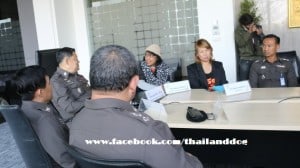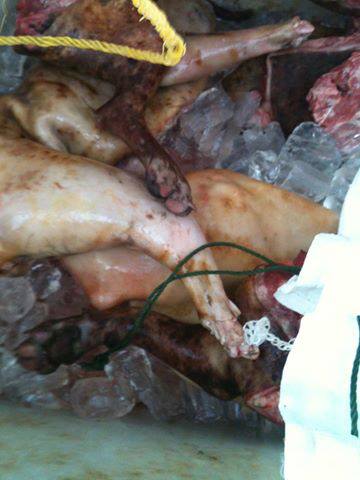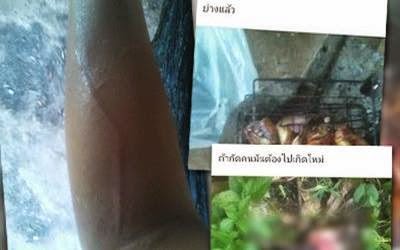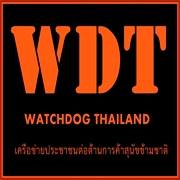Thailand dog and PAC – Pattaya Animal Coalition กลุ่มพิทักษ์สัตว์พัทยาแห่งประเทศไทย was present at the Suppression Of International Dog Trafficking Seminar.
On the 23rd of January, 2014, police General,authority of region4,Anuchai Lekbamrung held a meeting to arrange the increasing pressure for stopping dogs Traders with Watchdog Thailand and Soidog Foundation.
Also with other international non organization such as Ban Ob Oun Shelter Switzerland, Pattaya coalition (PAC),Voice of Dog Abroad Australia.
There are more 200 police stations from 11 provinces in region 4, the most sensitive places for dog meat trade to attend the meeting.
Including Police Colonel Sophon Saraphat, Chief of Region 4 , the Highway police Department and his Team,
The Unit of Suppression of Region 4 who work as WDT ‘s police teamwork.
Natural Resources And Environment Crime Suppression Division Police ,The MOU contract Police Team with WDT.
The commissioner provincial police region 4. Informing at the meeting reward supported by WDT and SDF for the policy as follow
1. For several thousand reward posters in the collection areas and the trail of dog snatcher trucks around villages in Region 4 to be effective will advertise a reward 5,000 Baht to local people who report for truk intercepted.
2. For reward 5,000 – 20,000 Baht plus 100 Baht per each dog
to police station and police officer or other official officer who arresting trucks,dog snatchers,smugglers and or any official officer to close down known restaurants and dog meat sellers and the small local butchers who get their dogs locally.
All arrest will including coordination method to make stronger laws for the case control by WDT and unit of suppression of region 4.
3. For printing police hand book for ” Stop dog meat trade” for all police stations in the country.
It has been more difficult recently to capture dogs, because the dog traders have grown wise to our methods and adapted new strategies. They take fewer dogs, and kill them locally, so it is more difficult to catch. Also, while our team does attempt to intercept them, it is hard to tell where the trucks will start out from.
Rather than focusing on small arrests and the closure of restaurants, we are trying to investigate the people at a higher level who are organizing the killing and trade of dogs so we can catch them.
In putting up posters advertising a reward for spotting trucks carrying dogs, it is on lone evel intended to have a psychological effect. If the posters emphasize the illegality of the trade, it can make villagers more wary of cooperating with dog traffickers. It can also perhaps put pressure on the police with increased publicity.
The meeting of the police on Jan. 23rd is especially important, because it both a) puts pressure on police to work towards getting rid of dog trafficking in their area of responsibility, in accordance with orders from the top down, and b) helps further to inspire them through a reward.
The purpose of this meeting is not simply to arrange to give awards for people who help to investigate and report dog carrying trucks. More importantly, it is to force police to follow the policy of dog trade suppression with orders from the highest level. These orders will make them diligently follow the policy to stop the trafficking, and prevent the ignoring of the policy. It is important psychologically, in that it not only encourages them in the hopes of a reward, but also makes them fear punishment.
The placement of posters in towns, villages, and districts will also keep up the pressure on both the traffickers and the police. In the long run, it should be successful in preventing the traffickers having any safe territory to travel in.
It will be easier for the police on the high level to focus on the larger trafficking groups who have more capital and are able to send out more trucks. In contrast, the smaller groups will gradually disappear because it will not be worth the trouble with the arrests and seizures.
Frankly, the problem of do trafficking trucks is caused by traffickers with influence. They have money and power, and can buy new trucks and hire new people all of the time. As long as they receive orders from abroad, and are able to distribute to small merchants, there will be a problem. At the same time, our policy of stronger enforcement of suppression will be effective. Restaurants and merchants will develop good relations with the police and local government animal husbandry units and the suppression of the trade can occur without a negative impact on culture and relations in the community.







